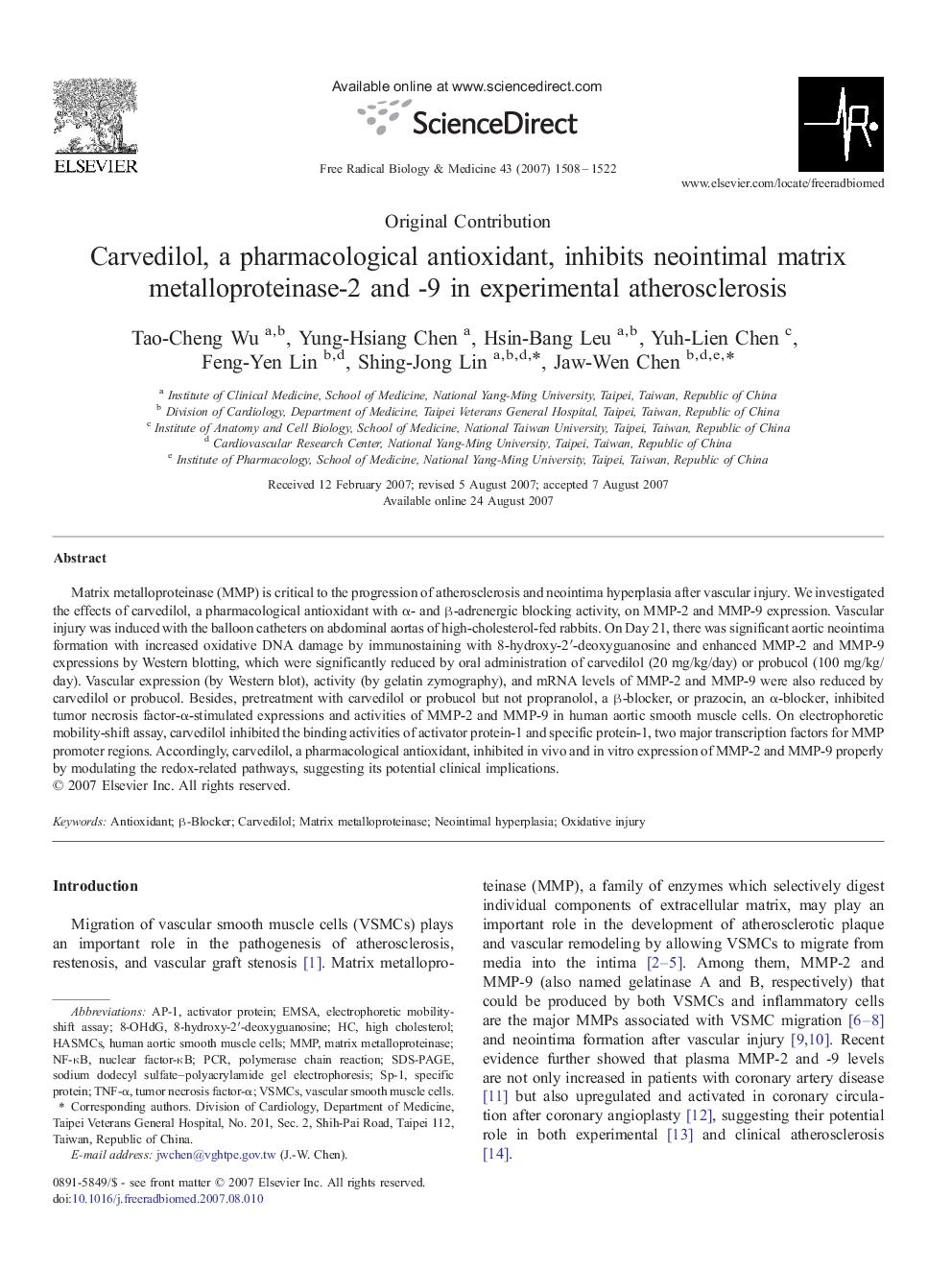| Article ID | Journal | Published Year | Pages | File Type |
|---|---|---|---|---|
| 1911269 | Free Radical Biology and Medicine | 2007 | 15 Pages |
Abstract
Matrix metalloproteinase (MMP) is critical to the progression of atherosclerosis and neointima hyperplasia after vascular injury. We investigated the effects of carvedilol, a pharmacological antioxidant with α- and β-adrenergic blocking activity, on MMP-2 and MMP-9 expression. Vascular injury was induced with the balloon catheters on abdominal aortas of high-cholesterol-fed rabbits. On Day 21, there was significant aortic neointima formation with increased oxidative DNA damage by immunostaining with 8-hydroxy-2â²-deoxyguanosine and enhanced MMP-2 and MMP-9 expressions by Western blotting, which were significantly reduced by oral administration of carvedilol (20 mg/kg/day) or probucol (100 mg/kg/day). Vascular expression (by Western blot), activity (by gelatin zymography), and mRNA levels of MMP-2 and MMP-9 were also reduced by carvedilol or probucol. Besides, pretreatment with carvedilol or probucol but not propranolol, a β-blocker, or prazocin, an α-blocker, inhibited tumor necrosis factor-α-stimulated expressions and activities of MMP-2 and MMP-9 in human aortic smooth muscle cells. On electrophoretic mobility-shift assay, carvedilol inhibited the binding activities of activator protein-1 and specific protein-1, two major transcription factors for MMP promoter regions. Accordingly, carvedilol, a pharmacological antioxidant, inhibited in vivo and in vitro expression of MMP-2 and MMP-9 properly by modulating the redox-related pathways, suggesting its potential clinical implications.
Keywords
NF-κBMMPVSMCs8-OHdGAP-18-hydroxy-2′-deoxyguanosineSp-1Oxidative injuryAntioxidantsodium dodecyl sulfate–polyacrylamide gel electrophoresisSDS-PAGEβ-blockerelectrophoretic mobility-shift assaytumor necrosis factor-αhuman aortic smooth muscle cellsVascular smooth muscle cellsEMSA یا electrophoretic mobility shift assay TNF-αnuclear factor-κBmatrix metalloproteinaseNeointimal hyperplasiapolymerase chain reactionPCRactivator proteincarvedilolHigh cholesterol
Related Topics
Life Sciences
Biochemistry, Genetics and Molecular Biology
Ageing
Authors
Tao-Cheng Wu, Yung-Hsiang Chen, Hsin-Bang Leu, Yuh-Lien Chen, Feng-Yen Lin, Shing-Jong Lin, Jaw-Wen Chen,
